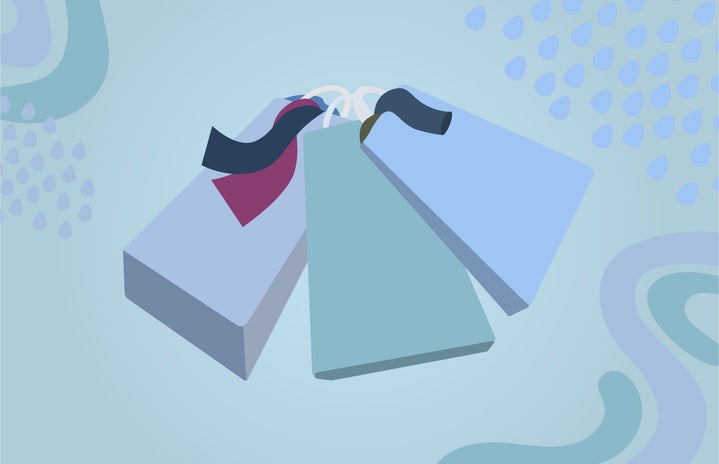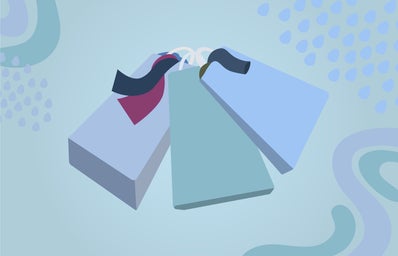This article is part of Her Campus’s ‘Anxiety on Campus: Feeling Seen & Speaking Out’, a project dedicated to highlighting mental health and anxiety on campus.
In the age of the “treat yourself” mentality, it seems that retail therapy is at an all-time high. When a classmate has a rough day, a friend goes through a breakup, or a roommate has a fight with their family, it’s time to “treat themselves.” And that purchase — whether it be a coffee, a new dress or a pair of shoes — does help with stress and anxiety to a certain extent. It definitely helps me. The problem starts when you’re making more than a few purchases, and you’re doing it way too frequently.
As someone living with both depression and anxiety, I am always looking for a way to relieve a constant feeling of worry or sadness — sometimes both. Last year, I found that in retail therapy.

I justified every purchase with the fact that I “deserved it,” thanks to the new developments in my life. I believed this wholeheartedly, even convincing myself at one point that I absolutely needed new purchases in order to improve myself. In some way, I felt that buying all those things would somehow help me get my life back — as if my new purchases were helping me become a new, improved person. The happiness from my purchases were brief, though, and it wasn’t long before I was handing my credit card to a cashier again.

I tried to run from my problems in the aisles of retail stores for the months that followed these events. I couldn’t buy enough things to fill what felt like a void consuming me. It came to the point where it didn’t even really matter what I bought anymore. I just needed something.
I was addicted to shopping because I was using it as a coping method for my chronic illnesses. Anything I bought was fleeting happiness, quickly disappearing along with my savings. When my bank account and credit card statements came, I couldn’t even be upset. I knew what I had been doing. In fact, the threat of overspending was almost intoxicating.

By the fourth month of this, things had gotten out of control. I was hiding purchases from my friends because I didn’t want to admit I had a problem. I wasn’t able to pay off my credit card. I had prioritized shopping over paying my electricity bill. While I knew this was coming, I was almost surprised I had made it that far. And now, something that had made me feel so in control of my life was threatening to spiral it out of control.
Unfortunately, these actions can be all too familiar to some. For over-shoppers, buying something can trigger the brain’s reward center, and because of this, shopping becomes a repetitive act. Compulsive buying disorder is an actual shopping addiction in which someone constantly purchases things (regardless of price or debt factors) in order to feel temporary euphoria or relief. Like most things, shopping for relief is okay — in moderation. But when it takes over your life, help is needed.
After a few trials, I found the right therapist for me. She told me that retail therapy wouldn’t solve my depression or heartbreak. Instead, it added another layer of stress, especially when the bills started coming in. We came up with a plan to “cure” my shopping problem.

Other than actually using my savings account for its intended purpose, we set up a “splurge fund” — something I could put twenty bucks in on payday, and use when I was feeling down. While I wouldn’t recommend squirreling away your life savings in an attempt to buy away your unhappiness, this fund gave me room to still use shopping in a time where I was having a hard time (without spiraling into debt).
That being said, I also needed to realize that my purchases weren’t going to dig me out of any bad situation or solve any of my problems. Yes, they made me feel better, but how would those new jeans replace something I needed emotionally? Unfortunately, love and affection can’t be bought on Amazon.
I’ve dedicated myself to staying busy and surrounding myself with people that can support me when I’m down (emphasis on people). When I’m not in a good place, they’re the ones who can actually give me things I need — a listening ear, a hug, or a sense of belonging. Try getting those from a pair of jeans.
If you or someone you know is in crisis, please contact the National Suicide Prevention Lifeline.


